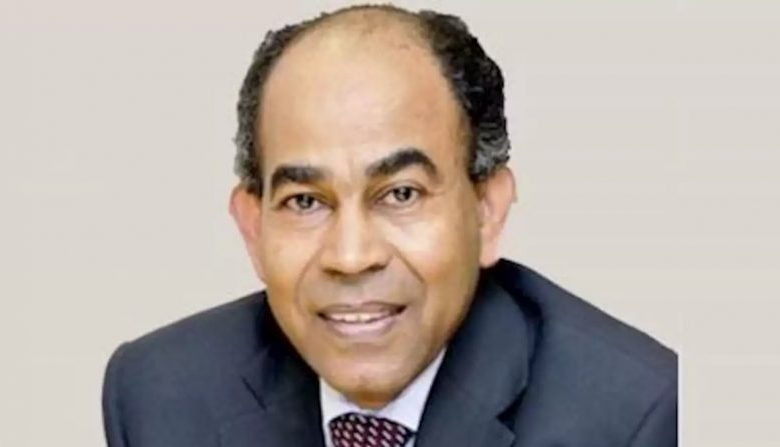The Conspiracy Targeting Sudan!

Osman Mirghani
The visit of member of the Sovereignty CouncilTSC ,Deputy Commander-in-Chief of the SAF Lt. Gen. Shams ElDin Kabashi this week accompanied by Defense Minister Lt.Gen.Yassin Ibrahim, to the countries of Niger and Mali shed light once again on one of the most dangerous files of the current war.
The SAF is not fighting the “RSF alone, but is also facing waves of human support coming across the border from the so-called “Arabs of the African Diaspora”, with them their dreams and aspirations for a homeland within Sudan.
There are numerous video clips documenting the successive arrival of large groups of militants coming from Chad, the Central African Republic ( CAR )Niger and Mali within the so-called “panic” to fight alongside the “RSF whether in Darfur, Kordofan, Gezira region and Khartoum.
In addition to dozens of videos in which members of the RSF talk about their aspiration to attack cities in northern Sudan, pursue their residents and expel them from their homes.
Just a few days ago, a video clip was circulating of one of their leaders launching a violent attack on the people of the north, threatening to expel them, saying that they are coming to them and “we will finish you off, and you are not Sudanese in the first place, and none of you have roots in this country… This is our country.”
Lt.Gen. YassirAl-Atta, Assistant Commander-in-Chief of the SAF spoke about this danger in statements he made last month, describing what is happening in Sudan as a “foreign invasion by the Arab diaspora” supported by some countries. He referred to the plan to establish a homeland for the Arab diaspora spread across West Africa, with this homeland to be in Darfur at the expense of its indigenous population, saying that “the goal of entering Al-Fasher is to declare a homeland for the Arab diaspora, and we will fight whether Al-Fasher falls or not, and we will not leave an inch of Sudanese land for the Arab diaspora at all.”
This dimension gives the battle of Al-Fasher, which is currently taking place, importance and danger in the course of the war with its apparent and hidden dimensions.
In addition to its historical and strategic importance, the city has become the last major city in the Darfur region that is not under the control of the RSF which have invaded the capitals of the other states of the region: Zalingei, Al-Daien, Al-Geneina and Nyala. Hence, the RSF have mobilized large forces supported by mobilized forces coming from neighboring countries and Arab diaspora to invade the city because this will give them control over a region estimated to be one-fifth the size of Sudan, possessing enormous resources and wealth, and open borders with three countries (Libya, Chad and the Central African Republic(CAR)facilitating the flow of weapons and people, and possessing an important card for negotiation or secession in a step that opens the door to the dreams of Arab diaspora that have inflated after the war and talk about their state project has become on the tongues of many of them, as is the case with well-known figures, particularly in Chad, frankly calling for supporting the RSFand fighting alongside them.
One of them spoke last April about lining up behind the RSF to complete the rest of the journey “by virtue of the unity of belonging and destiny, and the many common denominators that bind us as belonging, destiny, goal and project.” He also considered the RSF a project of existence for this nation,” announcing that this project “has never been as big and strong as it is today.”
The dreams of the “Arabs of the African Diaspora” for a homeland are not new, as is the case with the migration of a number of them to Darfur in different periods and contexts.
The idea of gathering the Arab tribes in Darfur into one body emerged during the eighties in what was known at the time as the “Arab Gathering,” but it declined after facing widespread criticism at the time and accusations of fueling tribal and ethnic conflicts in the state where different components coexist. Although talk of this gathering was renewed in the nineties, the issue of the state of the Arab Diaspora emerged with the outbreak of the current war.
There were many slogans launched during this war, such as “fighting the remnants,” “eliminating the 1956 State,” and “the revolution of the margins,” which dominated the discourse and obscured the vision of other, more dangerous aspects that threaten the entity of the state, even its existence. The war may have started as a struggle for power in Khartoum, but it acquired other dimensions, and multiple agendas, calculations, and interests were intertwined in it, the most dangerous of which is certainly feeding the dreams and ambitions of establishing a state for the Arabs of the African diaspora in Sudan by controlling all of it if they can defeat the army, or part of it in the partition scenario that we saw in other countries and in Sudan itself under different circumstances.



